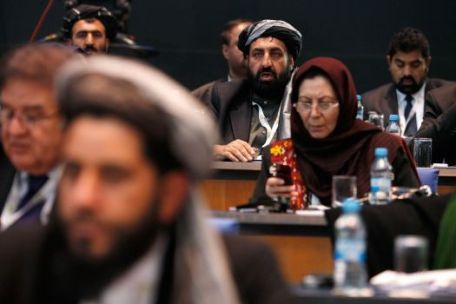The Second Bonn Conference and a New Political Approach

Pakistan’s Absence
A decade ago, the Bonn Conference on Afghanistan led to the formation of that country’s temporary administration. 10 years on and a second conference was held in Germany; this time, however, during uncertain times, especially given the recent problems between the US and Pakistan. Pakistan’s absence at this year’s conference will bring about unforeseen implications that can only be addressed in the future.
Pakistan’s absence in Bonn could shift the approach of its allies to a more aggressive stand. Therefore, the following question is raised: Could the second Bonn Conference be considered a turning point in renewing unity amongst its participants? Only the future will tell.
Yet there are questions regarding security and stability mechanisms in Afghanistan. All of which are left unanswered. This all leads to yet a bigger question regarding this conference’s effectiveness in comparison to the first one. Further diplomacy seems to be the way forward.
Iran’s Position
This year in Bonn, Iran made its position on current issues in Afghanistan explicit. Issues such as the lasting impact of Western and American forces in Afghanistan in regards to the future stability in the region. Iran’s swift response to the establishment of an American military base in Afghanistan is to be expected. Historically, Iran has deep political ties to the western regions of Asia. Naturally, Iran cannot be passive in the face of the establishment of a Western force in Afghanistan. Conventionally, Afghanistan was considered a neutral weight in its region. However, it seems that the West is seeking a new geopolitical function for Afghanistan.
The Western Standpoint
There was a subtle difference in the response of some European countries to this year’s conference. Britain’s reserved response differed from France and Germany’s enthusiasm.
America views this conference as part of a greater scheme. In future participations the US will aim to take further control of the country by diplomatic means. This, however, does not change its strategic objectives of a military treaty and the establishment of military bases in the country. The US insists on maintaining its commanding position in the NATO and European forces.
The Position of Eastern Countries
The second Bonn Conference witnessed new outlooks from some Eastern countries such as Russia, China and India. Sergey Lavrov, Russia’s foreign minister, raised significant issues and questions in Bonn. Russia insisted that Western intentions and behavior in Afghanistan are kept unclear. This presented the country’s new stand on Afghanistan. In the past, Russia attempted to play a strategic role in Afghanistan by opening the door for NATO operations. In a turn of events, however, Russia has expressed uncertainty over current events in Afghanistan.
India’s response to these issues has always been in discord with Pakistan’s. Pakistan cannot accept a deepened strategic aliment of India and Afghanistan, a position that Pakistan views rightfully it owns.
The Overall Perspective
The first Bonn Conference revolved around ensuring the Taliban’s suppression, the establishment of a new Afghan government as well as a new legal identity for the country. The conference this year, however, sought to establish a relationship with the Talban and to involve the group in Afghan politics-- a move that has given the Taliban a new position.

